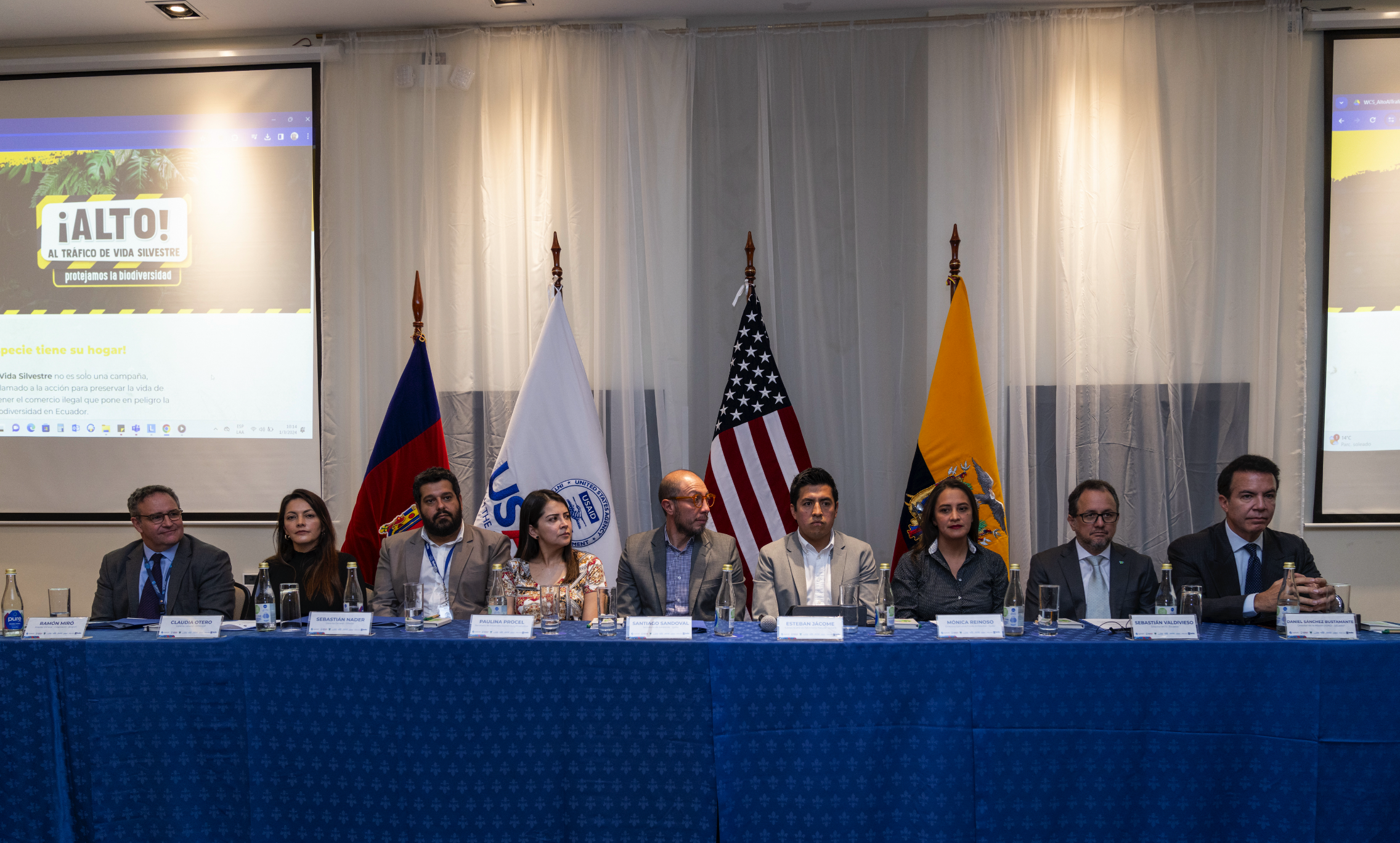Municipal institutions and civil society come together to prevent wildlife trafficking

With this event we commemorate World Wildlife Day, a day to remember that people around the world depend on resources based on wildlife and biodiversity to meet our needs, from food to fuel, medicine, living place and clothing. To be able to enjoy the benefits and beauty that nature offers to us and our planet.
The Secretariate of Environment of Quito, the Metropolitan Public Airport Services Company of Quito (EPMSA), the Metropolitan Public Company of Mobility and Public Works (EPMMOP), Corporación Quiport (Quito Airport Concessionaire), WCS Ecuador and the Environmental Fund of the capital, signed an Interinstitutional Cooperation Framework, in order to develop and implement strategic actions aimed at preventing wildlife trafficking at the national level and in the DMQ.
The signing of the agreement took place with a press conference that took place in Quito, through which the joint agreements were formalized. “Airports, like the one in Quito, are the entrances and exits for wildlife trafficking, thereforethe need to strengthen the capabilities in the control and sanctions that appear in the Environmental Organic Code of Ecuador for this type of infractions against the environment”, mentioned Sebastián Valdivieso, director of WCS Ecuador.
This collaboration involves the strengthening of capabilities of AVSEC Airport Security staff at the capital’s airport to reduce potential events of illegal wildlife trafficking, as well as the development of technical documents that contribute to the control, detection and prevention of this environmental crime in airport and land terminals. Also, the joint dissemination of communication campaigns is contemplated to raise awareness and educate users of these means of transportation and citizens in general about the impacts and risks associated with wildlife trafficking.
“The experience of all the institutions that we have joined forces to combat this environmental crime gives us a broader perspective to generate comprehensive and necessary public policy for the protection and efficient management of our environment,” said Santiago Sandoval, Secretary of the Environment of Quito.
One of the first actions to be implemented will be the continuous diffusion of a video on all the screens of the Quito International Airport, to massively communicate the message: “In Ecuador, wildlife trafficking is a crime,” in order to alert users about this problem that threatens biodiversity.
Within the framework of this event, the new launch of the national campaign “Stop wildlife trafficking. Let’s protect biodiversity” was carried out. This is an initiative led by the Ministry of the Environment, Water and Ecological Transition, which since 2017 has positioned the country as a reference in strategic actions to combat the third largest global problem, wildlife trafficking.
Some additional information
Quito is the capital of biodiversity, part of Ecuador, one of the 17 most biodiverse countries in the world. The entire Metropolitan District is home to more than 500 species of birds, 102 species of mammals, 77 species of amphibians, 46 species of reptiles and 21 species of fish.
The Chocó Andino contains 11 of the 15 ecosystems of the Metropolitan District of Quito, where around 50,000 inhabitants live, among landscapes of forests, bushes and grasslands with extraordinary productive and gastronomic wealth. Seven of the eight areas of the Metropolitan Subsystem of Protected Natural Areas are located, the ACUS Mashpi, Pachijal, Yunguilla, Mojanda Cambugán, Camino de Los Yumbos, AIER Pichincha Atacazo, Andean Bear Ecological Corridor.
